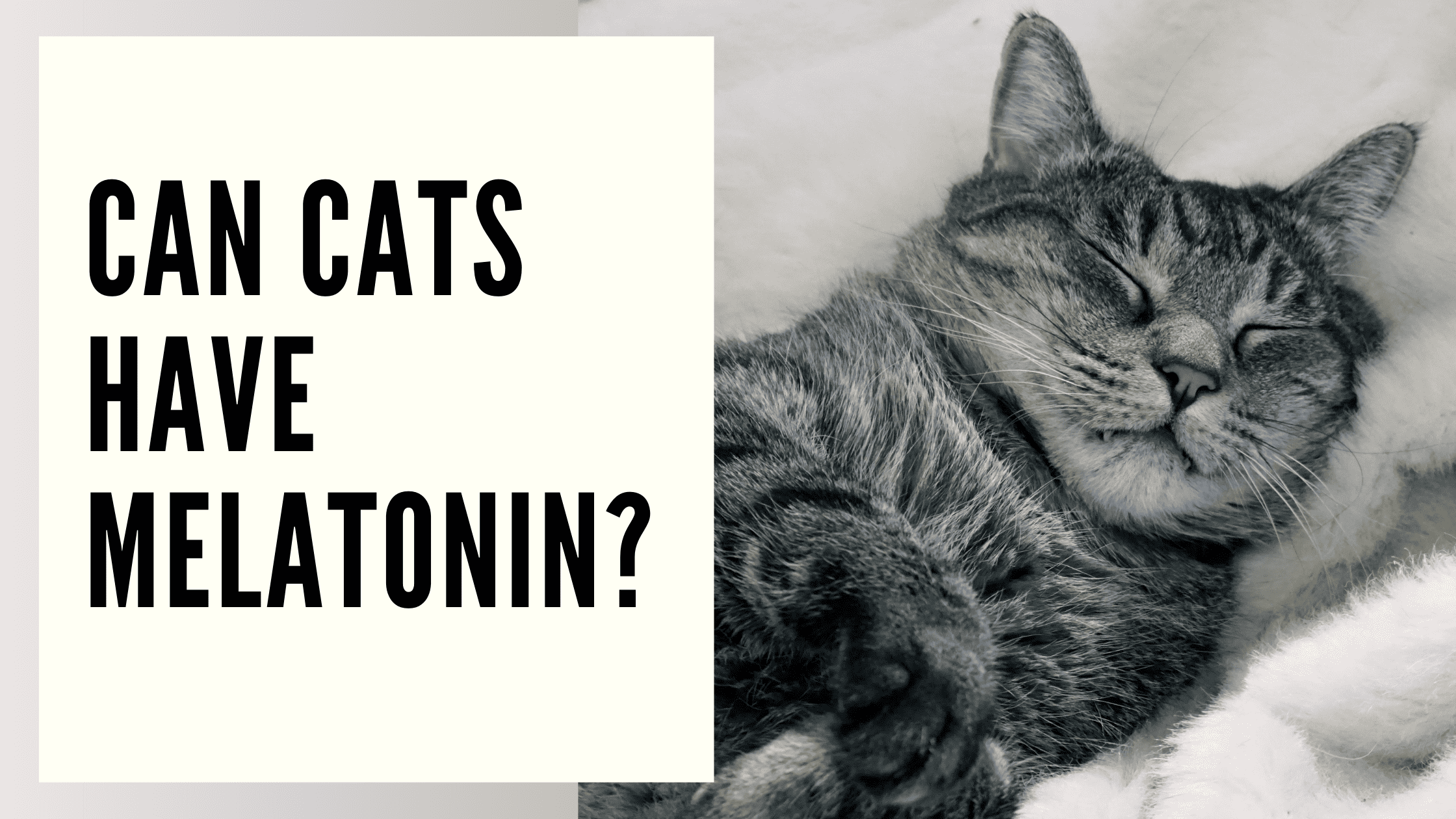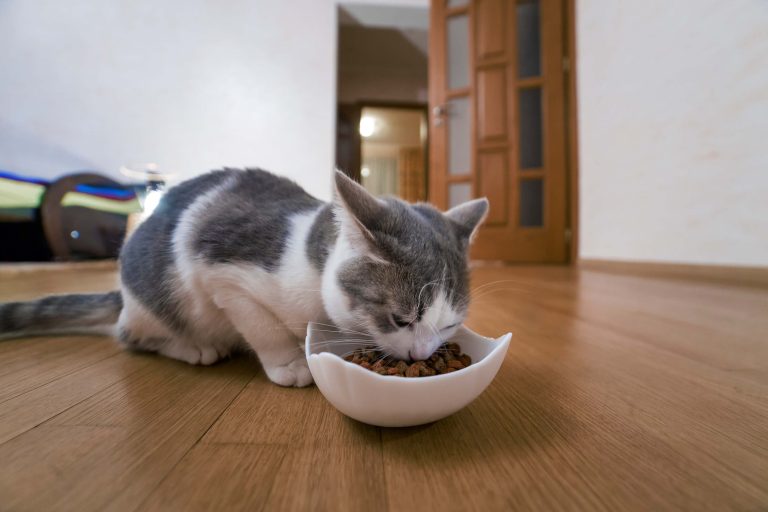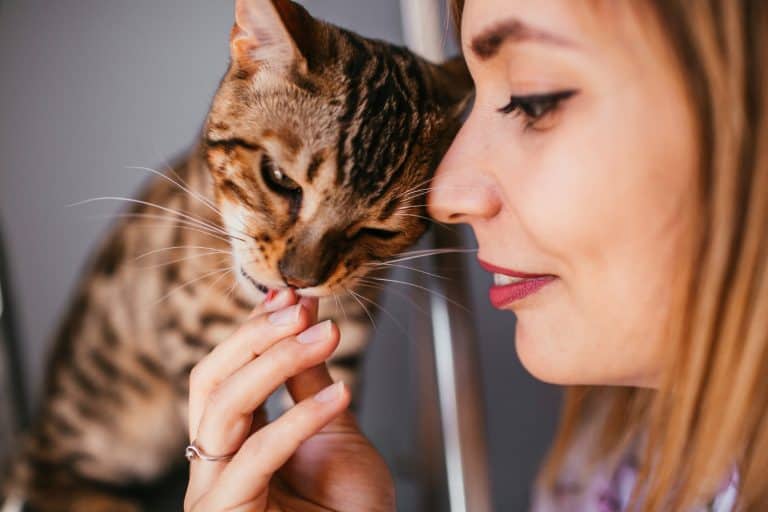Can Cats Have Melatonin? What is the Best Melatonin for Cats?
Melatonin is commonly used for insomnia in people and is often prescribed for dogs and cats to help with anxiety.
It can also be helpful for cat owners who experience behavioral issues like restlessness or stress-related hair loss. But can cats have melatonin?
Pet parents need to consult their veterinarian before administering melatonin. This will ensure it’s safe and appropriate for their feline companion based on age, weight, health conditions, and medication regimen.
Key Takeaways
- Factors like exposure to blue light from screens and stressful life changes can disrupt melatonin production in cats.
- Melatonin acts as a sedative, promoting relaxation and sleep in cats.
- Consultation with a veterinarian is crucial before giving melatonin to cats
- Only use veterinarian-approved melatonin supplements designed for cats, which include precise dosing instructions.
- Ensure melatonin is safe with any other medications your cat takes. Check for harmful ingredients like xylitol or warfarin.
- Consider natural remedies for cat insomnia and anxiety, such as CBD oil, valerian root extract, and chamomile tea, which are gentler and more palatable for cats.
What is Melatonin?
Melatonin is a natural hormone that promotes sleep and eases anxiety. It is an effective supplement for cats during stressful situations like traveling in their carrier or visiting the veterinarian. Melatonin may also help address insomnia.

Before giving your cat any form of melatonin, it’s advisable to consult their veterinarian. They can determine whether melatonin is proper, providing dosing instructions specific to their size and health status. Furthermore, melatonin products designed specifically for cats must be used – human melatonin supplements could contain toxic or harmful ingredients.
Melatonin may help treat behavioral and sleep issues in cats, lower adrenal disease symptoms, increase breeding rates in female cats experiencing hormone-related alopecia, help with non-allergic hair loss, and suppress heat cycles.
However, this benefit may only apply when combined with hormone treatments or medications such as hormone replacement therapy (HRT). Melatonin can often be administered safely without harmful side effects when under the guidance of a veterinarian; it should always be closely monitored if your pet’s health or behavior worsens after using melatonin.
Can Cats Have Melatonin?
As with any medication, melatonin should be taken with extreme care when giving it to cats.
Too much or administering it to those suffering from other health conditions could cause adverse reactions that require further medical care if taken incorrectly; working with a vet before starting supplementation is vital; they will assess your cat’s well-being before providing specific dosage instructions that meet his needs.
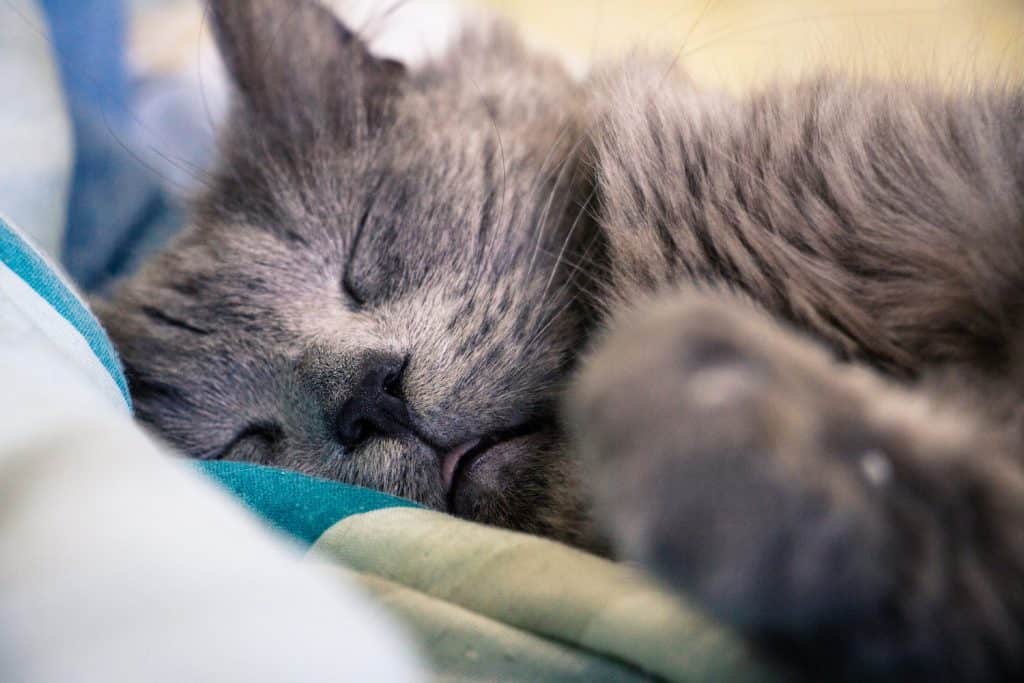
Melatonin dosage for cats depends on age, size, and temperament. As a rule of thumb, starting at the lowest possible dose and increasing gradually is wise; no amount should exceed 6 mg a day, regardless of size. Melatonin can also be given subcutaneously as this method may prove more suitable in treating difficult-to-take cats who won’t consume pills or chewables.
When combined with calming agents like chamomile, melatonin can help reduce stress and anxiety. It can also aid cats who exhibit behavioral issues like hyperactivity or aggression while treating sleep disorders; additionally, it has been reported to reduce heat cycle frequency for female cats.
Melatonin should not be given to cats suffering from digestive tract or inflammatory diseases like arthritis. Furthermore, pregnant or nursing cats should avoid giving melatonin due to potential interference with fetal development and milk production.
Natural Remedies For Cat Insomnia and Anxiety
Remember how fun it was to spook your siblings or friends and call them “scared cats”? Anxiety in your cat is no laughing matter, and a frightened feline is likely to show you unwelcome signs such as hiding, aggression, lack of appetite and weight loss, diarrhea, vomiting, and urination problems. While a grumpy, stressed-out cat is no picnic for any of you, there are ways to help your pet feel more at ease, such as using cat calming spray.
Melatonin is a hormone that your cat’s body makes naturally in response to the dark, which can help regulate their sleep and wake times. Just like in humans, changes in a cat’s daily routine can disrupt their natural production of melatonin and interfere with their ability to sleep. Other factors, such as noise and light anxiety, major life transitions, and trauma, can also impact a cat’s sleep cycle.
Several herbal supplements are effective in helping your cat relax. Valerian root, for example, has been found to change how parts of the brain connect, reducing feelings of anxiety and stress.
Chamomile extract has been found to have a sedating effect. It contains compounds that act on the same brain receptors as anti-anxiety drugs but are much less potent and have fewer side effects. Similarly, L-theanine in green tea can promote relaxation without affecting your cat’s alertness.
Another option is to give your cat a hemp-based CBD oil supplement that interacts with the receptors in their brain and nervous system, creating an effect similar to anti-anxiety medications but without any sedating effects. A few drops can be added to your cat’s food or water and have a powerful calming effect.
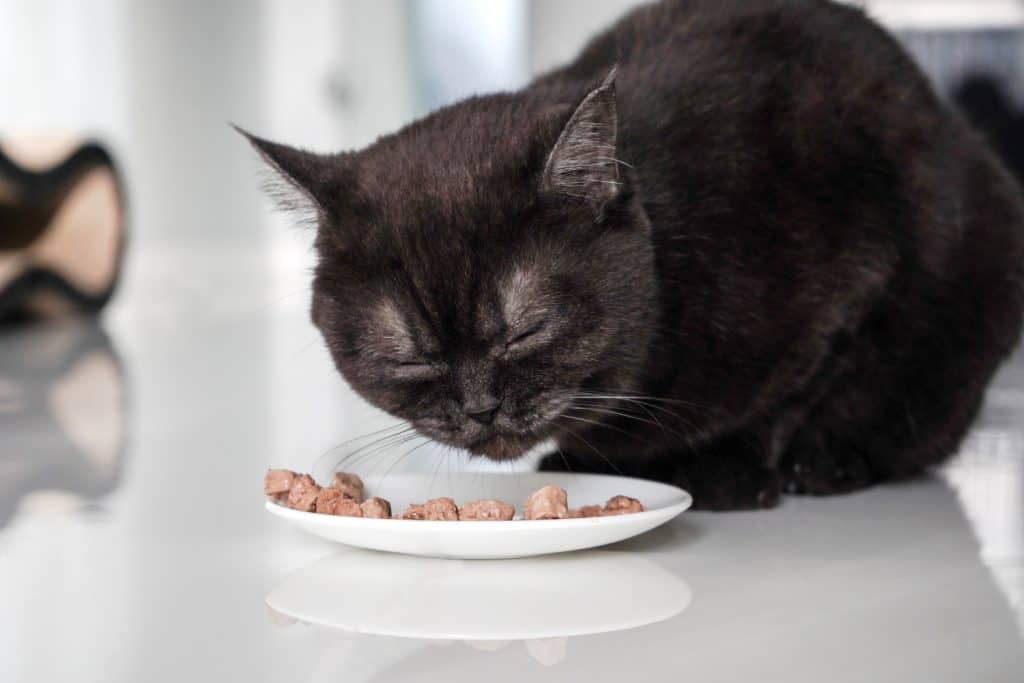
It is essential to consult your veterinarian before introducing any new wellness supplements, herbal therapies, or vitamins to your cat. Specific herbal remedies can interact with your pet’s medications, including prescription and over-the-counter medicines, or cause a dangerous reaction.
For instance, melatonin has been found to decrease the effectiveness of benzodiazepines. It may increase your cat’s blood levels of cortisol and estradiol in Cushing’s disease patients.
A vet will often start by recommending a few natural supplements and behavior modification techniques for your pet. These options tend to work best in cases of mild to moderate anxiety or for situations that will be short-lived (such as a visit to the veterinary clinic). For more severe issues, your veterinarian can prescribe medication and/or a behavior modification protocol to quickly alleviate symptoms and improve your cat’s quality of life.
Consult Your Veterinarian
Cats spend a significant portion of their lives asleep, and it’s not uncommon for them to have issues with their sleep-wake cycle, especially if they experience cognitive problems or are suffering from a health condition that affects sleep. Melatonin is often used to help re-establish a healthy sleep schedule in these cases.
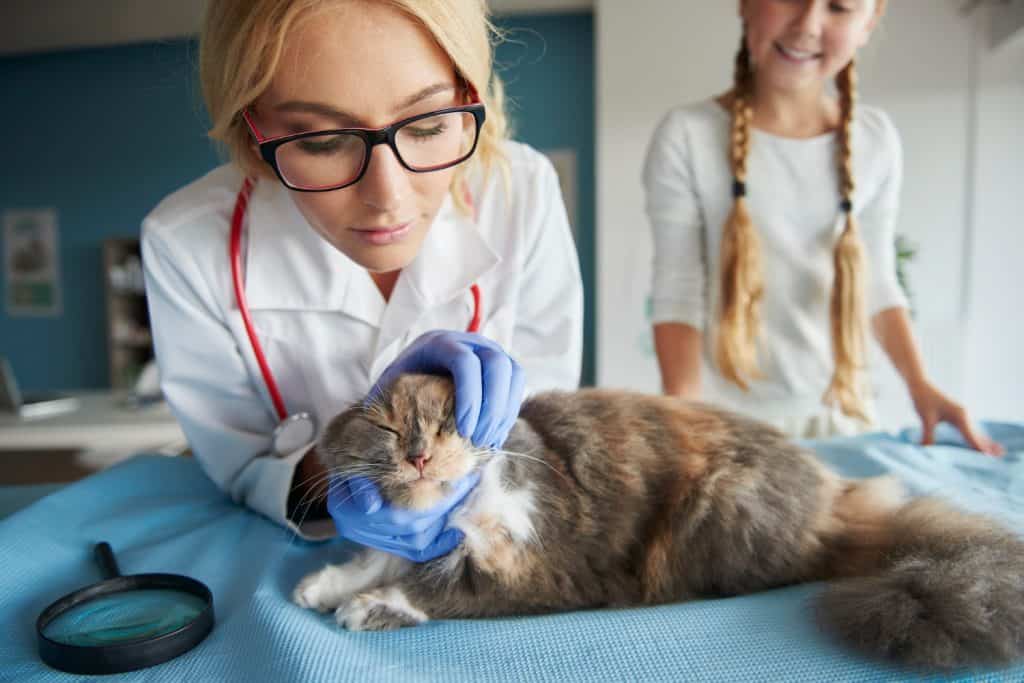
If you’re considering giving your kitty melatonin, consult your veterinarian first. They know intimately about your pet’s medical history, medications, and health conditions. They can guide you on when, how much, and what kind of melatonin you should give your feline friend. They’ll also be able to provide you with precise dosing instructions that are specifically formulated for cats.
In addition to helping your pet sleep better, melatonin for cats is also known to reduce stress and anxiety. This can make your furry family member feel more comfortable in situations that may be scary or stressful, such as riding in a carrier or going to the vet. It’s also helpful for cats with behavioral issues that might benefit from a calming effect, like aggression and fear of noises.
Melatonin for cats can be taken orally as a capsule, tablet, or liquid supplement. Liquid melatonin is more accessible to administer than tablets and pills, and it can be mixed with your pet’s food or water. There is also a subcutaneous implant called Dermatonin that can be administered under the skin to prevent the need for oral medication or sedatives.
Don’t Overdo It
Melatonin is often used as a sleep aid for humans, and it’s important to know that the human version of this supplement contains ingredients that aren’t safe for cats.
You’ll also need to ensure the product you choose doesn’t contain xylitol, an artificial sweetener toxic to cats. Instead, select a pet-specific melatonin supplement with a short list of ingredients and look for products manufactured under good manufacturing practices (GMP).
A veterinarian will determine the correct dosage based on your cat’s age and weight. It’s essential to adhere to these precise dosing guidelines to prevent overdoses or unwanted side effects.
If your kitty takes too much melatonin, they’ll be very sleepy and may experience some stomach upset. If they’re exhausted and exhibiting other signs of health problems, it could indicate something wrong with them, and they need to visit the vet as soon as possible.
Other possible symptom of too much melatonin is lethargy and depression. These symptoms are typically more severe in older cats. They could indicate cognitive dysfunction, pain, or other health issues. If your elderly cat experiences these symptoms, it’s essential to consult a veterinarian immediately.
Watch out for Side Effects
You must continuously monitor your pet’s health closely after using melatonin. Suppose they experience side effects, such as extreme drowsiness or stomach upset.
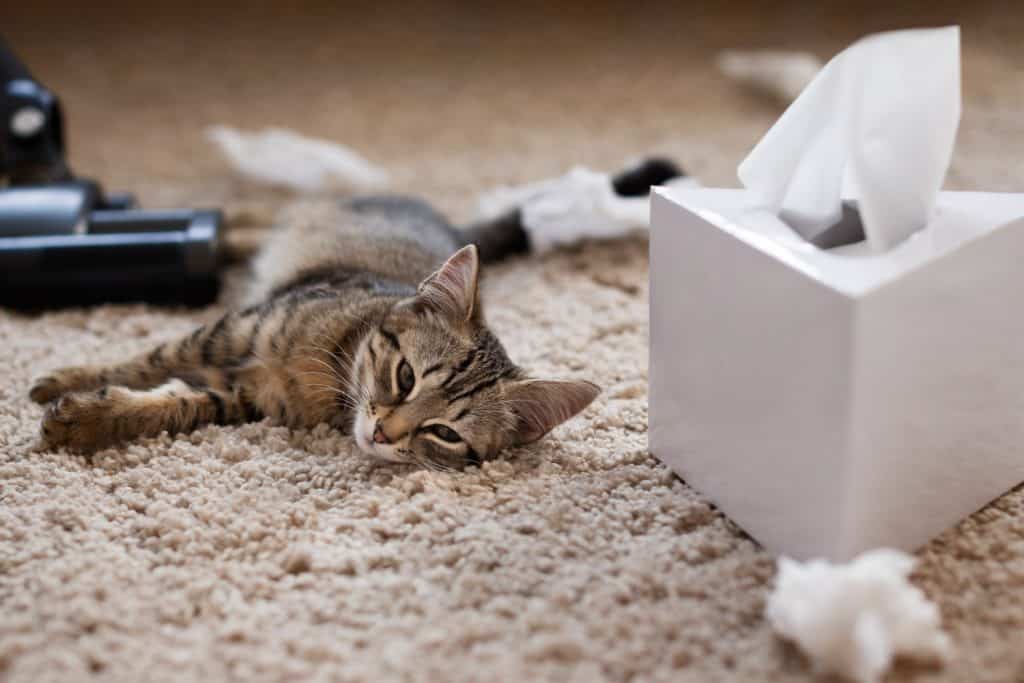
In that case, you must get them to a vet immediately. If this happens, it is often a sign that your cat took too much and needed a lower dose. You can also monitor your cat’s behavior to see if they act strangely after taking melatonin, which can indicate an allergic reaction.
If you notice your cat behaving oddly, it’s best to avoid giving them melatonin until they visit a vet. This is because melatonin may interfere with certain medications, such as anti-anxiety drugs. It’s also important to check that the melatonin you buy is formulated specifically for cats. Melatonin made for humans is usually ineffective at calming cats and can even be dangerous to them.
Another common reason people use melatonin is to suppress heat cycles in female cats. This can be helpful for pet owners who want to breed their cats but don’t wish to deal with the constant meowing and mess of an unspayed cat in heat.
However, it’s important to remember that this can cause several problems, such as a weakened immune system and weight gain. Therefore, having your female cat spayed before trying this approach is better.
What does Cat Melatonin Treat?
Cats often suffer from sleep issues, but melatonin can provide a safe solution to return them to a regular sleeping and wake cycle.
Whether hyperactive due to lack of exercise or boredom, having difficulty settling due to age-related pain, cognitive dysfunction (senility), or simply needing extra assistance when trying to fall asleep, melatonin may provide them with much-needed relief.
Melatonin dosage for cats depends on size and health condition, so choosing an animal-approved supplement with dosing instructions is essential. You should avoid products designed for human use as these may contain extra ingredients that could harm their well-being.
Melatonin can assist with sleep disorders and be used as a contraceptive and short-term estrus suppressant in female cats, providing temporary protection from estrus cycles. Furthermore, it can calm anxious cats during car rides, travel, or vet visits and reduce their anxiety.
Melatonin can have mild side effects for cats that should dissipate within several hours after administration, including drowsiness, increased salivation, and sometimes vomiting.
If your cat experiences severe sedation or nausea after taking the melatonin dose, seek medical advice immediately – they could be having an allergic reaction to the drug or have another health issue that needs professional treatment.
It is Not a Cure-All
While melatonin can be helpful for some cats, it is not a cure-all. It should not be used as a long-term solution for sleep problems or behavioral issues, and it may mask underlying health concerns.
Talk to a veterinarian if you notice your cat exhibiting signs of a problem, such as trouble settling down or frequent awakenings. Sometimes, a lack of exercise and stimulation may cause these symptoms. At the same time, other times, it could be a sign of pain or cognitive dysfunction (similar to dementia).
It’s also essential to choose melatonin that is specifically formulated for pets. Human melatonin can contain additional ingredients that are toxic to cats. One of them is xylitol – a sugar substitute that is particularly dangerous for them. Look for a melatonin product that is free of xylitol and is manufactured with good manufacturing practices.
Melatonin is typically used to help dogs and cats with sleep issues. Still, it can also be helpful for other conditions. It can ease anxiety, promote healing after surgery, and even suppress a female cat’s heat cycle. It can be administered as a pill, capsule, or liquid and given to cats on an empty stomach or with food.
When choosing a melatonin supplement, starting with the lowest dose and slowly increasing your cat’s dosage based on their reaction is best. Choosing a reputable product that lists all ingredients clearly is also essential. Avoid products with xylitol, which is poisonous to dogs.
Melatonin should never be used as a long-term treatment for any condition, but it can be a great short-term solution for some cats. It should be given under the guidance of a veterinarian to ensure that your pet is receiving the right amount of melatonin and is being used correctly. It’s also essential to monitor your pet carefully after using melatonin to ensure they don’t develop adverse side effects.
Monitor Your Cat’s Sleep Cycle
Melatonin is a great way to help cats regulate sleep patterns and promote restful sleep. It can also be helpful for cats with difficulty dealing with specific triggers, such as noise or visitors. Melatonin can help them stay calm and relaxed in these situations, making them more able to handle their behavior and anxiety.
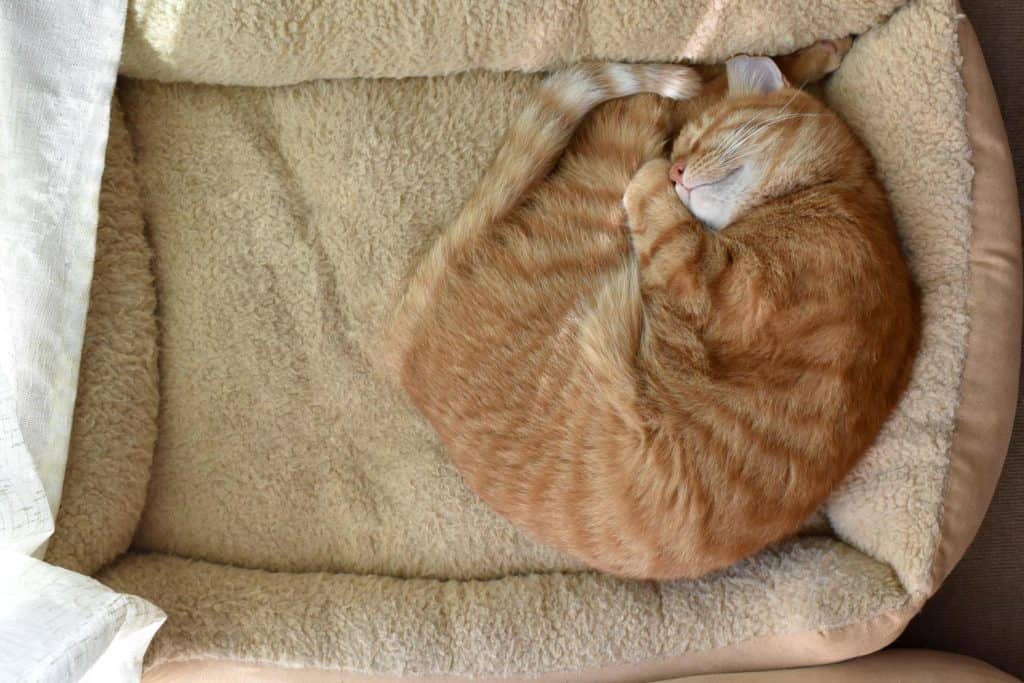
However, it is essential to monitor your cat’s sleep cycle after they start taking melatonin for cats. Some cats are sensitive to it; if too much is taken, they might experience adverse side effects like drowsiness or lethargy. In addition, if your pet is already on any medication, it is crucial to check that they don’t have any interactions with melatonin.
Other health concerns that can be treated with melatonin for cats include uveitis (an inflammatory condition affecting the eye) and Cushing’s disease, which is caused by the overproduction of hormones like cortisol. Melatonin can be an effective treatment for both of these conditions, as it is used to treat humans with uveitis and has been shown to have anti-inflammatory properties.
However, it is essential to know that melatonin should be given only under the guidance of a veterinarian. It’s also important to keep in mind that melatonin might mask some behavioral issues and other health problems that need to be addressed with other treatments, like medications or special diets. This is why regular veterinary care is so essential for cats.
Keep an Eye on Your Cat’s Weight
As with many wellness resources, melatonin can benefit cats when used under the guidance of a veterinarian.
It can be a valuable tool to help your cat with insomnia associated with certain health conditions, jet lag, other sleep disorders, anxiety and separation anxiety, Cushing’s disease, depression, epilepsy, and other health issues.
It may also promote healthy weight loss. However, because melatonin occurs naturally in the feline body, it’s essential to consult a vet before using it. This will ensure your cat is given the correct dosage.
Because a cat’s regular sleep patterns are a crucial part of their overall health, melatonin can be helpful to support and regulate their routines. It can help them adjust to environmental changes like moving to a new home, introducing holiday festivities, and re-establishing their sleep schedule after recovering from illness or surgery.
It can also be helpful to keep them calm in the face of stress triggers such as noise or visitors. Additionally, some owners have reported that melatonin can help suppress heat cycles in female cats.
Remember that melatonin should only be used to help support your pet’s wellness, and setting up a good daily routine is essential. It is not a treatment or cure for any health issue. It can also interact negatively with other medications your pet is taking. This includes certain sedatives, corticosteroids, and monoamine oxidase inhibitors.

